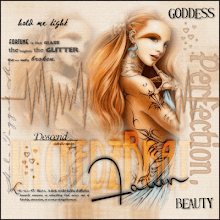So I really like the concept behind “From Poem Beginning “The” [Dedication] by Louis Zukofsky even if I didn’t like the rest of the excerpts from the poem and it may be that I didn’t spend enough time taking it apart to satisfy my curiosity. The other poem that is in this collection by Zukofsky is really interesting and quite funny if a person looks at it in a certain way! I mean he is essentially thanking the wash-stand for being there and doing what it is suppose to be doing but in a way that is just really weird. I find it interesting that I find the poem good, I normally can’t stand poems have weird sentence structure but this one I liked.
Out of the selection of poems that are avalible from George Oppen I find that all but two of them are ones that I could forget and not really have it matter to me at all. The two that I like are “Solution” and “From Of Being Numerous”. “Solutions” I find great just because of the imagery it provokes. A puzzle, which took a long time is finally finished all of the hated table is covered, meaning that the puzzle is finally finished and the person who completed it is standing back and looking at it with a sense of accomplishment. As a person who loves puzzles I know that feeling as well as the frustration and a little anger at seeing the table no matter how hard you try to cover it because you still can’t get the puzzle to work the way you want it to. The other poem “From Of Being Numerous” is saved because of the word choice and my connection to those words. The first one word that popped out at me was the word pantheon. It is such an interesting word that I just wonder why it isn’t used a little more. I also liked the line “Are petty alibi and satirical wit”. I like the thoughts those words together provoke; what is a petty alibi? I didn’t know that alibi’s can be petty. I think it would be really interesting to read the entire poem “Of Being Numerous” even if I have no clue how Oppen got from one topic to the other.
Lorine Niedecker is someone that I could give or take. Her rhyming keeps getting in my way. Although I did like “What Horror to Awake at Night” and the idea of Nothing as a person. I find there isn’t much else I can say about her.
I stopped reading “From Holocaust” by Charles Reznikoff because I have to be in a particular frame of mind to read it. Its another poem that showcases the cruelty of people and made all the more gruesome by the fact that it is probably based in reality. That is not my idea of entertainment. It seems to me that Reznikoff is able convey things that most other poets can’t. I don’t know of any other poet that can convey the probable desolation and loneliness of the outside who doesn’t know why s/he is an outsider only that s/he is an outside and will be mocked if s/he goes outside when other people are out there. I really like all of Charles Reznikoff’s poems for different reasons.
Basil Bunting’s “On the Fly-Leaf of Pound’s Cantos” is interesting. It seems like Bunting doesn’t understand the Cantos and is comparing it to the Alps and waiting for it to crumble which isn’t likely to happen anytime soon. Which I think is the point so “Sit down” look at them, study them “and wait for them to crumble!” I also like “What the Chairman Told Tom”. I think I liked it because an accountant doesn’t sweat either and as someone who likes both accounting and poetry it’s an interesting combination.
Subscribe to:
Post Comments (Atom)

Your discussion of Reznikoff is very interesting, Fawn--I'd love to hear more about your notion of the "outside" in his work (this resonates for me with Spicer's use of the term "Outside" to talk about the mysterious and terrifying source of the poet's inspiration, as well as, for some reason, Heidegger's concept of "the Open").
ReplyDelete